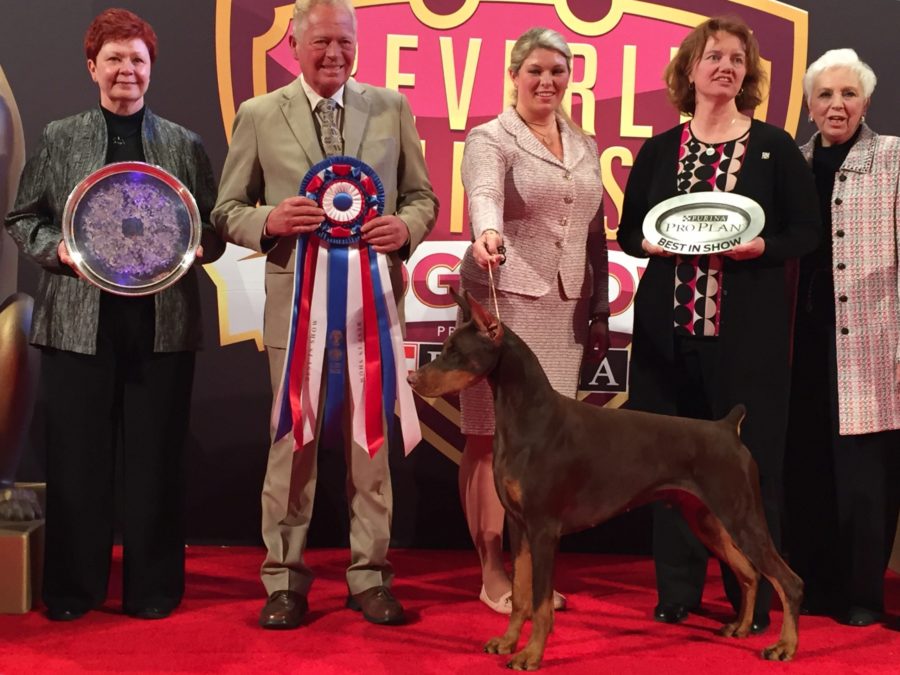Being a show dog is the canine equivalent of entering beauty contests. There are many levels to work through. Getting to Westminster (which has 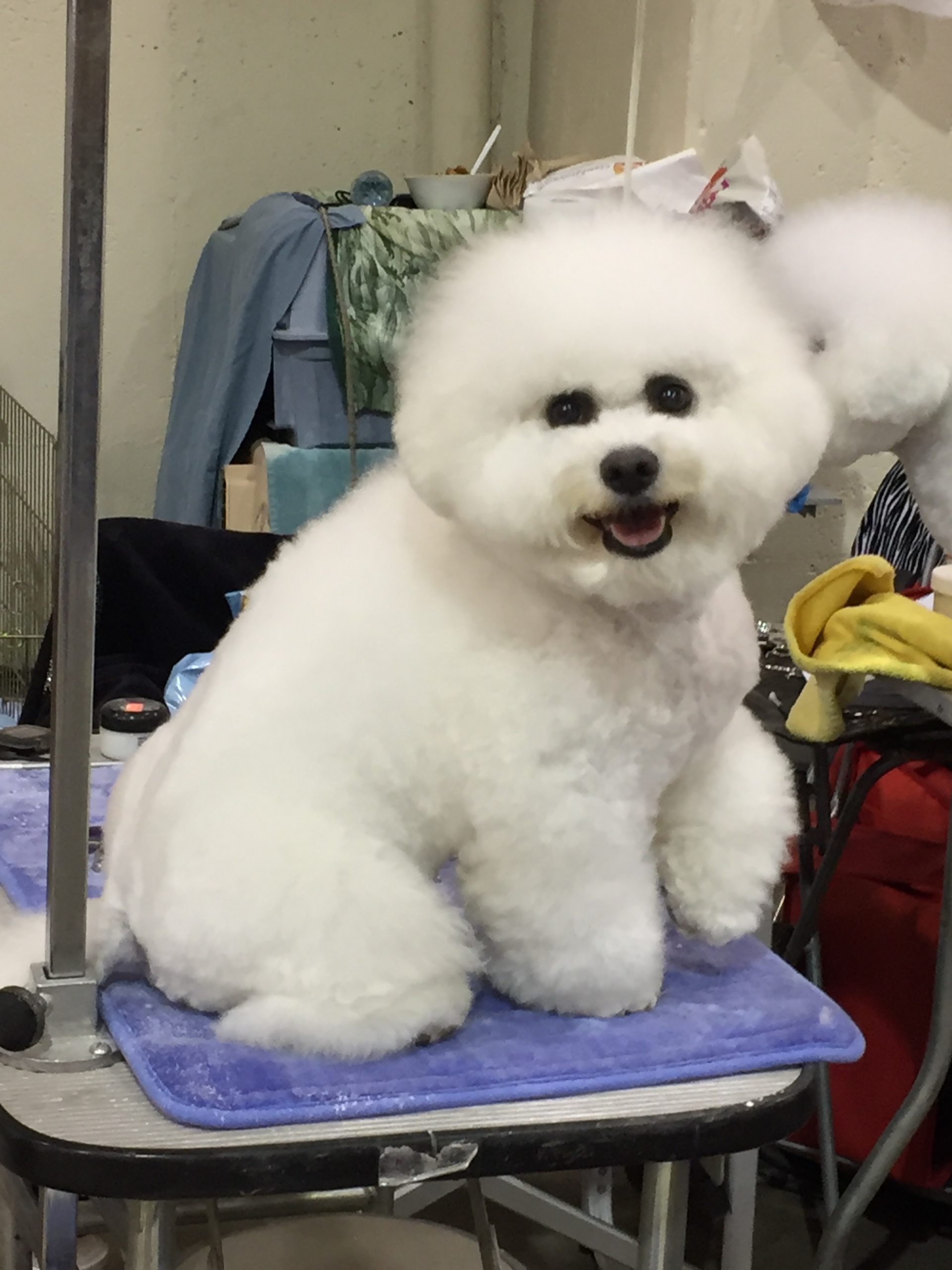 been postponed this year due to the pandemic), the National Dog Show, or one of the other large benched shows is like being in the finals for Miss America!
been postponed this year due to the pandemic), the National Dog Show, or one of the other large benched shows is like being in the finals for Miss America!
The road from puppyhood to show ring star is a long one. Preparation for a career as a conformation show dog begins early.
That’s because it’s not natural for dogs to travel, be comfortable with handling by strangers, and deal with the excitement and stress of a show career. They need plenty of practice first.
Head Start
Step one is for the breeder to make sure puppies get the best possible start in life. For future show dogs that begins before the breeding – searching for a compatible mate with the necessary physical qualities for a top show dog as well as the solid temperament needed. Any breeding is a roll of the dice but starting with good parents is the ideal.
Once pups are born, breeders handle them daily, doing early neurological stimulation to help pups learn to handle stress. The ENS program uses five easy daily techniques developed by dog expert Carmen Battaglia.
ENS Protocol
Tactical stimulation: 3 to 5 seconds of “tickling” puppy’s toes with a cotton swab
Head held erect for 3 to 5 seconds
Head pointed down for 3 to 5 seconds
Supine position: gently holding puppy “belly up” for 3 to 5 seconds
Thermal stimulation: placing puppy on a cold, refrigerated towel for 3 to 5 seconds
Enrichment
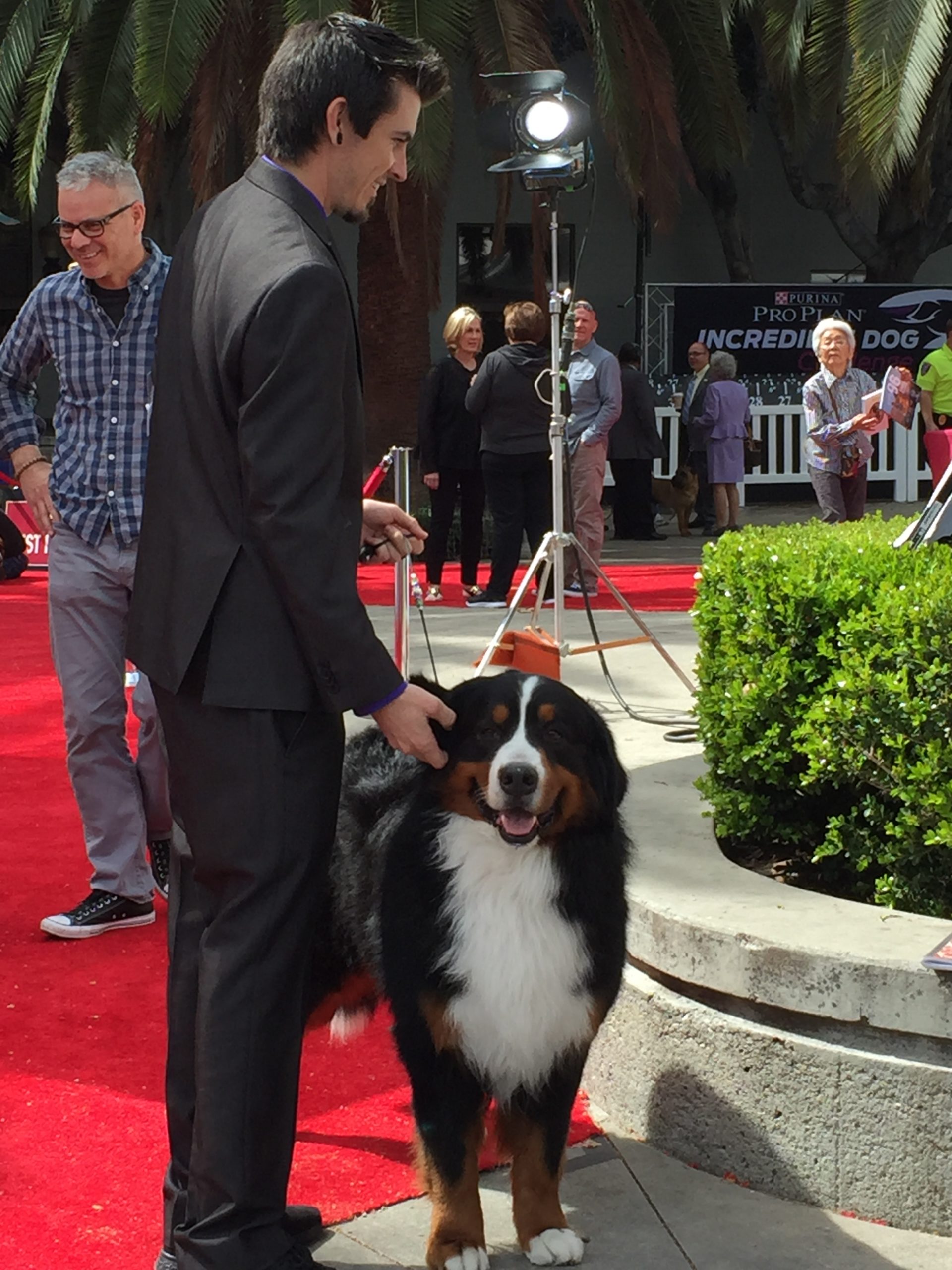 In addition, many puppy enrichment programs have been developed. These are not just for “show” puppies; all puppies benefit. A specific addition for show dogs to these socialization and enrichment programs is to play CDs of some of the normal sounds heard at a dog show, such as loudspeakers, crates banging, or dogs barking. Additional CDs play “normal life” sounds like thunderstorms and sirens. Puppies learn that strange sounds are not scary.
In addition, many puppy enrichment programs have been developed. These are not just for “show” puppies; all puppies benefit. A specific addition for show dogs to these socialization and enrichment programs is to play CDs of some of the normal sounds heard at a dog show, such as loudspeakers, crates banging, or dogs barking. Additional CDs play “normal life” sounds like thunderstorms and sirens. Puppies learn that strange sounds are not scary.
Once in their new homes, puppies continue to receive proper socialization. During fear periods, which can vary with individual dogs, they may need to cut back on outings. These resume once they are past that “hump.”
Practice, Practice!
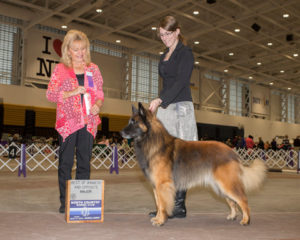
Many kennel clubs offer matches, practice shows that are ideal for puppies. Judges look at conformation, but they also play with puppies, offer treats or toys, and try to make the exciting situation with other puppies in a new place a fun occasion. Training classes for conformation shows handle puppy classes the same way. Puppies learn to be comfortable with a dog ahead, a dog behind, and having a stranger gently palpate their bodies.
By the time your pup is ready for her first “real” dog show at 6 months or older, you will have an idea of her personality. Some dogs are what we call “bombproof” – nothing bothers them beyond a quick startle. Those dogs handle indoor shows, outdoor shows, anything and everything.
Other dogs obviously aren’t having a good time. They may prefer an outdoor show where things aren’t quite so congested, noisy, and chaotic. Some dogs become distracted by birds flying by or squirrels in a nearby tree while showing outdoors and do better inside. Some dogs prefer a performance event where they have a task to focus on and they are the only dog competing at a time. And some dogs smile and ask to stay home and hang out in the yard or on the couch with you. You can overcome some natural tendencies with training, but at some point, it is best for all to simply go with your dog’s natural tendency. She may not be a Westminster contender.
The Time of Covid
Much of the socialization mentioned above has been curtailed with the current Covid pandemic. That doesn’t mean your pup needs to sit home in isolation, however. While there may not be safe practice situations in your area, your pup still needs to get out.
Walking at parks and on trails is a great and safe way to get your pup out. You will encounter people and dogs. For now, simply have your pup sit quietly with treats, while the people and dogs pass by. Put yourself between any rowdy or out-of-control dogs and your puppy so he is not overwhelmed. You can also walk around the parking lot at your local grocery store. Your pup will get to see lots of people and some unusual things like shopping carts.
It is not recommended to allow strangers to pet your pup at this time. There are concerns about people passing this coronavirus on to pets (not vice versa so far). Still, people can approach and admire your pup as you feed treats, so he feels that people approaching is a good thing.
In some areas, there are “safe” puppy classes that follow Covid protocols. Look for those – masks on, sanitizer available, and an instructor who wears gloves or cleans her hands between touching dogs. You can also seek out online puppy classes that offer socialization and training guidance using Fear Free techniques.
Know Your Dog
All six of my current dogs compete in a variety of dog sports. Five of them are breed champions. One has yet to show as she is not steady in conformation despite being a top performance dog. Two finished their championships and asked to concentrate on performance. Three think shows, any type of shows, are a blast. I try to honor what my dogs enjoy. It is more fun for all of us that way.
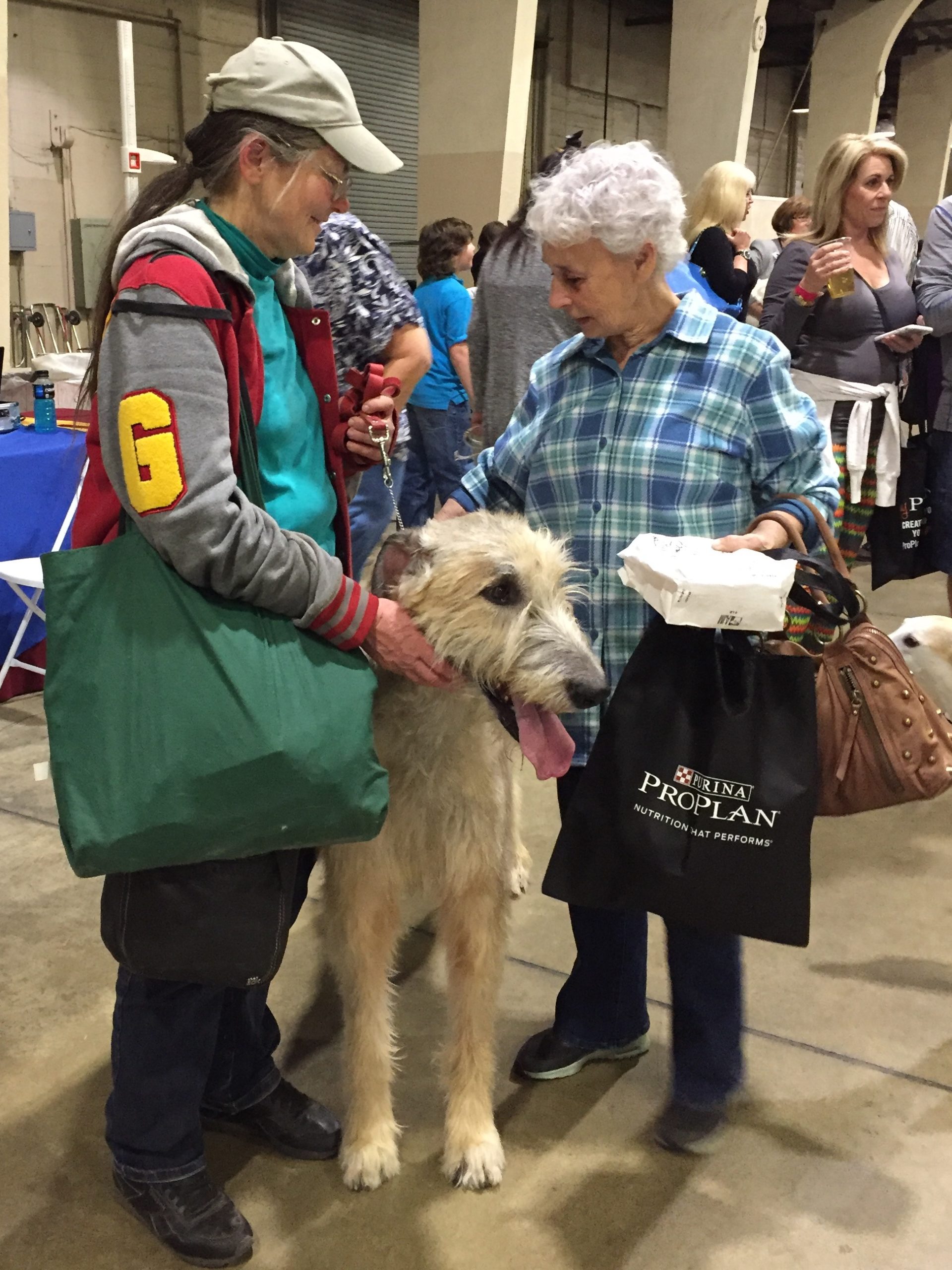 Large benched dog shows tend to draw the most experienced dogs. The day is long – starting with breed competition. At “benched” shows, when they’re not in the ring, dogs must stay in their assigned spot for the day to be available for the public to come by and see them. Crowds are thick. It takes a special dog to not only tolerate but also enjoy that kind of chaos.
Large benched dog shows tend to draw the most experienced dogs. The day is long – starting with breed competition. At “benched” shows, when they’re not in the ring, dogs must stay in their assigned spot for the day to be available for the public to come by and see them. Crowds are thick. It takes a special dog to not only tolerate but also enjoy that kind of chaos.
Dogs who win the breed move on to Groups, with more crowds, flashing lights, a very loud loudspeaker, and more tension in the air. Even normally steady dogs can be worried in such a pressure-filled setting. A rock-solid bitch who has come into heat may suddenly be skittish about having the judge handle her, for instance.
Even normally calm handlers are nervous. To say nothing of the fact that the evening judging goes much later than the average’s dog’s bedtime! The good news for you and your dog is that you can enjoy the spectacle together without ever having to leave your couch!
This article was reviewed/edited by board-certified veterinary behaviorist Dr. Kenneth Martin and/or veterinary technician specialist in behavior Debbie Martin, LVT.

